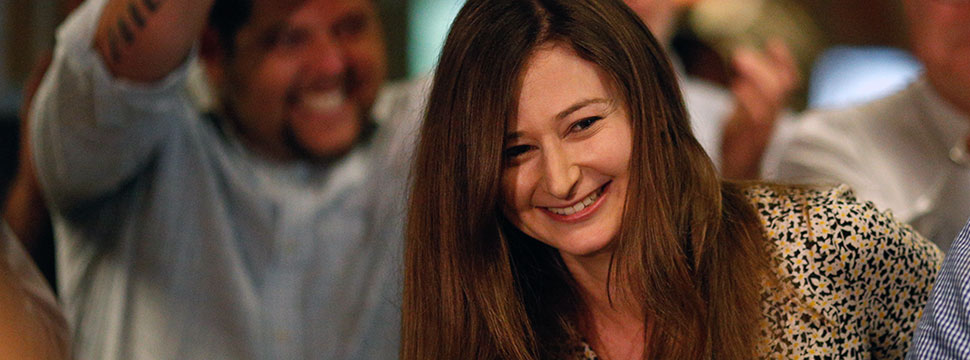Lisa Gartner ’10 was part of a Tampa Bay Times team that won the Pulitzer Prize for Local Reporting in 2016. Gartner and her colleagues were recognized for the "Failure Factories" series, which detailed the decline of five Florida public schools.
An ardent supporter of local journalism, Gartner says her time at Northwestern’s Medill School of Journalism, Media, Integrated Marketing Communications continues to pay dividends, and she encourages current students to be equal parts curious and committed to their craft.
How did Medill prepare you for a journalism career?
How didn’t it? At Medill, you learn from so many great minds — both faculty and peers. I was a freshman the year North by Northwestern started. I got involved with that and I learned so much from that world.
Unlike some other majors, journalism is an intellectual pursuit and a trade — you learn by doing. There were so many opportunities at Medill to learn by doing.
What courses and/or skills have been especially helpful in your career?
Professor Charles Whitaker’s magazine editing course really helped me think about what makes a story successful. Even though I don’t work as an editor or at a magazine, that class helped me understand where a story goes right or wrong in terms of structure. Because of Whitaker’s class, I do a lot of self-editing now. I reflect on that class all the time.
As for skills, I learned during my time at Northwestern that the best questions you can ask are “how” and “why.” The best stories often come from listening and letting people tell their stories in their own words.
What does it take to win a Pulitzer Prize?
Journalists need a newspaper or publication that supports their project, that will give them the time and resources they need to execute a given project. They also need a cohesive team and a strong editor. We spent 18 months on “Failure Factories.” There were difficult days, and we leaned on each other all the time. The process is very trying.
Journalists also need the right story and a good measure of luck. I would say anyone who wins a Pulitzer Prize is hardworking, creative and determined. But the truth is many journalists are those things and more, and they won’t win the prize because part of winning is a confluence of events and luck. I cannot overstate how lucky I feel.
What advice would you give to a current or prospective Medill student who wants to win a Pulitzer some day?
Use your time at Medill and your first years out of college to really master the fundamentals. Commit to the craft of journalism and make yourself the best possible at the smaller things so you’re prepared when you get the opportunity to do the longer project or the bigger story.
Never think a story or a beat is beneath you, and don’t rule out local journalism. With so many small papers shutting down, local reporting is needed now more than ever. Local news might not be as glamorous, but you can have a major impact at that level.

